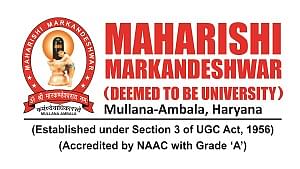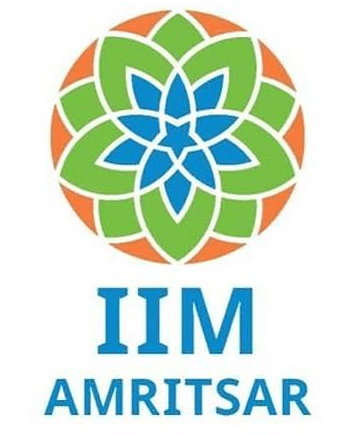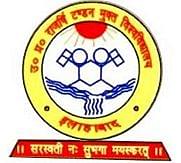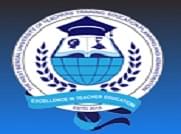Introduction about Ph. D in Special Education
A Ph.D. in Special Education from top college is an advanced academic degree program designed to prepare scholars,
researchers, educators, and leaders in the field of special education. Special
education focuses on providing individualized support and services to students
with disabilities or exceptionalities, ensuring they have access to quality
education and opportunities for academic, social, and emotional growth.
In a Ph.D. program
in Special Education, students delve deeply into theories, research, policies,
and practices related to the education of individuals with disabilities across
the lifespan. They explore topics such as inclusive education, assessment and
evaluation, curriculum development, behavior management, assistive technology,
transition planning, and family-school partnerships.
One of the primary
goals of a Ph.D. program in Special Education is to prepare students to conduct
rigorous research that advances knowledge and informs evidence-based practices
in the field. Students engage in coursework in research methodologies, statistics,
and data analysis, as well as hands-on research experiences culminating in a
doctoral dissertation.
Ph.D. programs in
Special Education often emphasize interdisciplinary collaboration and may draw
from fields such as psychology, sociology, education policy, and neuroscience
to provide students with a comprehensive understanding of the complex factors influencing
the education and well-being of individuals with disabilities.
Graduates of a
Ph.D. program in Special Education are prepared for diverse career pathways,
including academia, research institutions, government agencies, nonprofit
organizations, and school districts. They may pursue roles as university
faculty members, researchers, program evaluators, policy analysts, professional
development providers, or administrators, working to improve outcomes for
individuals with disabilities and promote equity and inclusion in education.
Overall, a Ph.D. in
Special Education equips students with the knowledge, skills, and expertise
needed to make meaningful contributions to the field, advocate for the rights
of individuals with disabilities, and drive positive change in educational
systems and practices.
What is admission process for Ph. D in Special
Education ?
The admission process 2024 Ph.D. in Special Education generally involves several steps,
although specific requirements may vary depending on the institution offering
the program. Here's a general overview of the typical admission process:
Research Programs: Start by researching Ph.D. programs in
Special Education to identify those that align with your academic interests,
career goals, and personal preferences. Look into factors such as faculty
expertise, research opportunities, program reputation, and location.
Meet Prerequisites: Ensure you meet the prerequisites for
admission, which often include a master's degree in special education,
education, psychology, or a closely related field from an accredited
institution. Some programs may require specific coursework or professional
experience in special education or related fields.
Application: Complete the application form provided by
the institution offering the Ph.D. program. Applications are typically
submitted online through the university's admissions portal. Pay close
attention to deadlines, as they vary between programs.
Transcripts: Submit official transcripts from all
post-secondary institutions attended, including undergraduate and graduate
coursework. These transcripts should demonstrate strong academic performance,
particularly in relevant coursework.
Letters of
Recommendation: Typically,
applicants are required to provide letters of recommendation from academic
and/or professional references who can speak to their qualifications, academic
abilities, research potential, and suitability for doctoral-level study in
special education.
Statement of
Purpose: Write a compelling
statement of purpose or personal statement outlining your academic background,
research interests, reasons for pursuing a Ph.D. in Special Education, career
goals, and how the program aligns with your aspirations. This is your opportunity
to demonstrate your passion for the field and your readiness for doctoral
study.
Resume or
Curriculum Vitae (CV):
Provide a comprehensive resume or CV detailing your educational background,
work experience, research experience, publications, presentations, and any
relevant achievements or certifications.
Standardized Test
Scores: Some programs may
require applicants to submit scores from standardized tests such as the GRE
(Graduate Record Examination) or the MAT (Miller Analogies Test). However, many
programs are moving away from standardized test requirements or offering waivers
for certain applicants.
Writing Sample: Some programs may request a writing
sample, such as a research paper, academic essay, or professional writing
sample, to assess your writing and analytical skills.
Interview (if
applicable): Depending on
the program, applicants may be invited to participate in an interview as part
of the admissions process. This interview may be conducted in person, over the
phone, or via video conference.
Application Fee: Pay the application fee, if applicable, as
required by the institution.
After submitting
your application materials, the admissions committee will review your complete
application package and make decisions based on factors such as academic
qualifications, research potential, letters of recommendation, statement of
purpose, and fit with the program. If admitted, you'll receive an offer of
admission along with any relevant financial aid or funding information.
What is eligibility for Ph. D in Special Education
?
Eligibility criteria for Ph.D. in Special Education can vary depending on the specific
program and institution offering the degree. However, here are some common
eligibility requirements you may encounter:
Educational
Background: Typically,
applicants are required to hold a master's degree in special education,
education, psychology, conselling, or a closely related field from an
accredited institution. The master's degree should provide a solid foundation
in theories, practices, and research methods relevant to special education.
Academic
Performance: Applicants are
generally expected to have a strong academic record, particularly in
graduate-level coursework relevant to special education or related fields. This
may be evidenced by transcripts from previous academic institutions.
Work Experience: While not always required, many Ph.D.
programs in Special Education prefer applicants with relevant professional
experience in special education, teaching, conselling, psychology, or related
fields. This experience might include teaching students with disabilities,
conducting research, providing clinical services, or working in educational
policy or advocacy.
Research Experience
and Skills: Demonstrated
research experience and skills are often valued for admission to a Ph.D.
program. This might include prior research projects, publications,
presentations at conferences, or involvement in research-related activities.
Letters of
Recommendation: Applicants
are typically required to submit letters of recommendation from academic and/or
professional references who can speak to their qualifications, academic
abilities, research potential, and suitability for doctoral-level study in
special education.
Statement of
Purpose: A well-written
statement of purpose or personal statement is often required, in which
applicants articulate their academic background, research interests, reasons
for pursuing a Ph.D. in Special Education, career goals, and how the program
aligns with their aspirations. This is an opportunity to demonstrate your
passion for the field and your readiness for doctoral study.
Standardized Test
Scores: Some programs may
require applicants to submit scores from standardized tests such as the GRE
(Graduate Record Examination) or the MAT (Miller Analogies Test). However, many
programs are moving away from standardized test requirements or offering waivers
for certain applicants.
Language
Proficiency: International
applicants whose native language is not English may need to demonstrate
proficiency in English through standardized tests such as the TOEFL (Test of
English as a Foreign Language) or the IELTS (International English Language
Testing System).
It's important to
note that eligibility requirements can vary between institutions and programs,
so it's essential to carefully review the specific requirements of each Ph.D.
program you're interested in applying to. Additionally, some programs may have additional
requirements or preferences beyond those listed here.
What is syllabus for Ph. D in Special Education ?
The syllabus for Ph.D. in Special Education can vary significantly depending on the specific
program, institution, and the research interests of faculty members. However,
here are some common topics and areas of study that you might encounter in a
typical Ph.D. program in Special Education:
Advanced
Foundations of Special Education:
Historical and
philosophical foundations of special education
Legal and policy
issues in special education
Theoretical
frameworks and models of disability and exceptionalities
Advanced Research
Methodologies in Special Education:
Quantitative
research methods (e.g., experimental design, survey research, statistical
analysis)
Qualitative
research methods (e.g., phenomenology, ethnography, grounded theory)
Mixed-methods
research approaches
Program evaluation
and assessment methodologies
Advanced Topics in
Assessment and Evaluation:
Advanced assessment
techniques for students with disabilities
Diagnostic
assessment and evaluation processes
Functional behavior
assessment and analysis
Curriculum-based
assessment and progress monitoring
Advanced Curriculum
Development and Instructional Strategies:
Curriculum design
and adaptation for students with diverse learning needs
Differentiated
instruction and Universal Design for Learning (UDL)
Evidence-based
instructional strategies and interventions
Assistive
technology and accessibility considerations
Transition Services
and Post-School Outcomes:
Transition planning
for students with disabilities across the lifespan
Vocational
rehabilitation and career development for individuals with disabilities
Supported
employment and independent living services
Community-based
supports and services for transition-aged youth and adults
Family-School
Partnerships and Collaborative Practices:
Family-centered
practices in special education
Collaborative
consultation and problem-solving processes
Collaboration with
community agencies and service providers
Culturally
responsive practices in family engagement
Policy, Advocacy,
and Systems Change in Special Education:
Policy analysis and
advocacy in special education
Systems change and
reform initiatives
Ethical
considerations in special education research and practice
Leadership and
professional development in special education
Advanced Seminar in
Special Education Research:
In-depth
exploration of current research topics and trends in special education
Critical analysis
of empirical studies and theoretical frameworks
Development of
research questions and methodologies for dissertation studies
Dissertation
Research and Writing:
Proposal
development and research design
Data collection and
analysis
Dissertation
writing and defense
Universityfindo is best
place where you learn , you encalcate habits , etc . We provide you platforms
to develop your skills and move towards a better future with best packages












